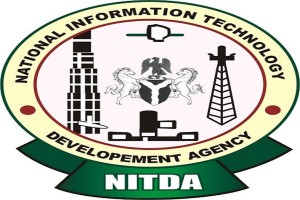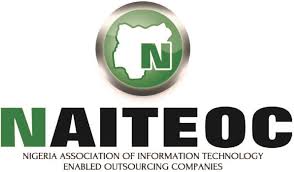 For Nigeria to fully tap the gains of Outsourcing in the Information Technology sector, Experts across the globe including World Bank recommend the adoption of a novel Public Private Partnership (PPP) scheme. Indigenous stakeholders hope on this as the federal government seeks socio-economic revitalization of Nigeria through the industry, DAYO PAUL reports.
For Nigeria to fully tap the gains of Outsourcing in the Information Technology sector, Experts across the globe including World Bank recommend the adoption of a novel Public Private Partnership (PPP) scheme. Indigenous stakeholders hope on this as the federal government seeks socio-economic revitalization of Nigeria through the industry, DAYO PAUL reports.
Business Process Outsourcing, Information Communication Technology and Information Technology Enabled Services, (BPO/ICT/ITeS) is not novel. The industry is viable of revamping the economy of a growing nation with sustainable job creation opportunity that will cater for the scourge of unemployment syndrome, in peculiar; Nigeria.
Other countries in and beyond the Africa continent are benefitting this business process model with significant contribution to their nation’s Gross Domestic Product (GDP)
In recent years authorities in Ghana, Kenya and South Africa, as well as Francophone markets such as Morocco, Côte d’Ivoire and Senegal, have moved to map out long term strategies in this area. Kenya’s government has been working to develop the industry since the mid2000s, and the sector now includes hundreds of firms offering a variety of services.
In terms of attracting international outsourcing, Nigeria must also eventually compete with global leaders like India. In 2012 some 2.8m Indians were employed in the industry, and outsourcing brought in revenue of around $11bn, equal to 1% of the country’s GDP.
Daura Ashiru, the Director of software outsourcing at NITDA in a report cited these figures as an example of the sector’s potential. “India makes more money [from outsourcing] than what Nigeria makes in oil,”he added “And we are more advantageous than India in this area.”
But Nigeria, Africa’s largest economy by GDP, is lagging behind its counterparts on the continent, in terms of harnessing BPO’s wealth creating potentials. With the largest population in Africa, half of which is below the age of 25, and English Language as Lingua Franca, the nation’s demographics are attractive for BPO recruiters, experts said.
Information Technology (IT) outsourcing or BPO is the practice of subcontracting responsibility for all or part of an IT function to a third party service provider that manages the work.
The scheme is yet to fly despite series of government commitments and strategies in the country. As it is now, there are concerns that government is not looking into this industry inspite of the nation’s recession and unemployment in the economy.
OUTSOURCING NIGERIAN ECONOMY, WOLRD BANK’s VIEW
The World Bank in a recent report estimated the Nigerian ICT/BPO/ITES market to be an annual US$5 billion marketplace. This is across both the public and private sector. The report says the market is expected to grow to an annual US$10 billion over the next 5 years. And With effective policy and management, the sector can create employment for a minimum one (1) million citizens directly and 3 million indirect jobs.
According to the report, the strategies that will create these sustainable and demand driven jobs include; the need for the Presidency to be directly involved in the promotion of the sector. This can be achieved through executive or presidential buy-in, support, championing and direct supervision of the industry. It could also be through the setting up of a presidential task force to ensure the effective implementation and monitoring of the job creation strategies/ policy across sectors of the economy; Government Digitization/ Automation of Processes Policy Directive:
Also, the automation of manual processes and digitization and electronic archiving of government data and records across all Ministries, Departments and Agencies (MDAs) will cut government present annual cost of 20 billion naira on paper.
This reduction in cost can be used to employ youths to scan and digitize government data and records. We estimate a minimum 800,000 jobs will be created in 18 months with this policy in place.
Industry Regulators: 
key regulators of the economy as Central Bank of Nigeria, Nigeria Communication Commission, National Health Insurance Scheme, National Insurance Commission, Nigerian Civil Aviation Authority, Securities and Exchange Commission, National Pension Commission, Nigerian Electricity Regulatory Commission and Standard Organisation of Nigeria should pass regulations that stipulate that every company providing retail services to the general public directly or indirectly must maintain a contact service centre to provide customer service to consumers to ensure complete consumer satisfaction by creating an avenue for inquiries, complaints and feedback.
Also, ratios should be established in accordance with international standards as to the number of customers to customer services agents. For example, a business that clams to have 40 million customers should have at the very minimum 20,000 customer service agents to service that base (ratio of 1 agent: 2000 customers). We estimate a minimum 100,000 jobs will be created in 12 months.
Succinct to not that the Nigeria Association of Information Technology Enabled Outsourcing Companies [NAITEOC] in partnership with the World Bank, had a discussion forum at the World Bank Country Office Asokoro Abuja-FCT recenjtly to discuss on the theme: “Jobs For All- Sustainable, Demand Driven Job creation in Nigeria through Business Process Outsourcing, Information Communication Technology, Information Technology Enabled Services” (BPO/ICT/ITeS).
Outsource Services Portal and Contact Centre
Recommendations after the in-depth forum also bring to fore how the federal government can harness the share infrastructure and local content to grow the nation’s GDP. Hence it was generally agreed that government investment in infrastructure for contact centre services that enable shared services across MDAs should be further enforced and mandated across the public sector so as to bring about access and improved public interaction with the government through outsourcing.
Government services portal which is an initiative by which government services can be conducted online through the services portal; Unified email messaging and collaboration platform should also be outsourced. Note that this platform enables speed and efficiency of official communication and provide the means to share, store and gain access to official document anytime, anywhere and on any computer or mobile device; it also include the ability to send encrypted email, schedule meetings online, assign and track staff and colleagues on official tasks and assignment, send circulars service wide. The portal is also meant to serve as a central information portal or intranet for the government.
With Open data development initiative designed to make information and data freely available and searchable, encouraging feedback, information sharing and accountability in governance government can make impact. This is meant to open up high value data sets from across government ministries to Nigerian citizens, businesses and the rest of the world for free. e-Nigeria/Government Platform: This comprises e-payment, e-procurement etc;
Private Sector
While Nigeria’s ICT-enabled outsourcing segment remains relatively underdeveloped, a handful of companies have established a presence. ConSol, which was established in 2002, operates contact centres and provides other BPO services. In addition to the Lagos State government, ConSol’s clients include major domestic corporates, such as Skye Bank, and a handful of multinationals, such as Proctor & Gamble and British American Tobacco.
Additionally, in November 2013 ConSol won a tender put forward by the FMCT to build and operate an information contact centre for the federal government in Lagos. The facility will employ more than 100 people. Like Onu, ConSol’s managing director and CEO, Abiodun Adeoye, has said that the federal government represents a major potential source of business for Nigerian outsourcing.
However, ConSol is far from the only player. Other corporates that are either currently providing ICT enabled BPO services in Nigeria or are in the process of setting up shop in this area include iWayAfrica, a Mauritius-based ICT services company that is active in markets across the continent, and Resource Intermediaries, a Lagos-based outsourcing firm.
iSON is also on the bloc in the private sector. The company handles MTN, Airtel, Vodafone, Etisalat, Tigo, Standard Chartered, GTBank, Safaricom, Multichoice, Globacom, Fastjet, Union Bank, among others.
Outsourcing Forum
According to the Chairman of Nigeria Association of Information Technology Enabled Outsourcing Companies (NAITEOC), Mr. David Onu who said there is still room for improvement both in the public and private sector of the industry for Nigeria to tap the outsourcing goldmine that would change the fortune of the nation’s economy.
He said “the absence of right policy and legal framework, poor social and IT infrastructure and high tax regime are some of the challenges facing the development of outsourcing in the country. Outsourcing has the potential to create five million direct and indirect jobs in Nigeria in the next five years and these we are bring to fore in the December forum.’’
With the theme:” Outsourcing: A catalyst for Change, Economic Growth, Job and Wealth Creation” Onu said the December 5 to 7th stakeholders forum schedule to take place at the Shehu Musa Yar’Adua Centre, Abuja, is timely as the industry is set to catalyze the change mantra of President Muhammadu Buhari and support his strive for the economy.
Explain what the conference is expected to address he has this to say, “China, India and the U.S. had been the main destinations of global Foreign Direct Investments (FDIs) in ICTs, accounting for more than 50 per cent of the overall investment.
“India’s share alone amounts to nearly 17.2 billion dollars. Nigeria, with its enormous human resources and endowed skills should be seen at the top of the ladder in providing ICT solutions and outsourcing opportunities. “Our aim therefore is to be the market hub of outsourcing in Africa and to provide jobs annually for our teeming unemployed youths in-line with the presidency vision.’’
Outsource to Nigerian Practitioners
Government has no business to outsource information technology to foreigners. Nigeria Computer Society (NCS) and Association of Outsourcing Practitioners of Nigeria, (AOPN) in the industry have been pronounced on this pointing that that there are competent home grown practitioners in the industry.
This, according to Prof. Sola Aderounmu, NCS and President of AOPN Dr. Austin Nweze, undermine the industry and its practitioners in the country. They hope government would belive in made in Nigeria in every sphere of the IT sector be it, hardware or software.
Meanwhile, Onu added that although government was working hard to develop the sector, more efforts and collaboration from the private sector was still needed for its development. He said the three days forum would address some of the pointed challenges.
He noted that a vibrant outsourcing sector would not only help to create jobs, it would also promote economic development and accountability in government.








